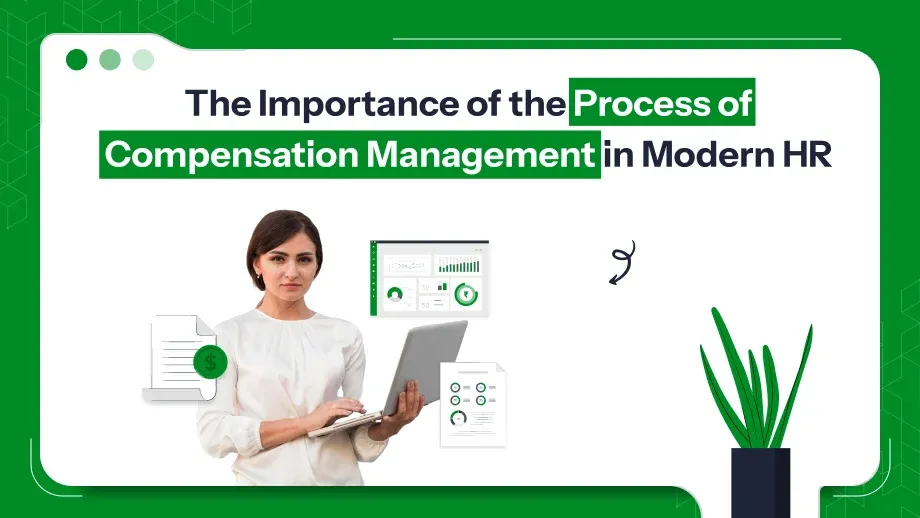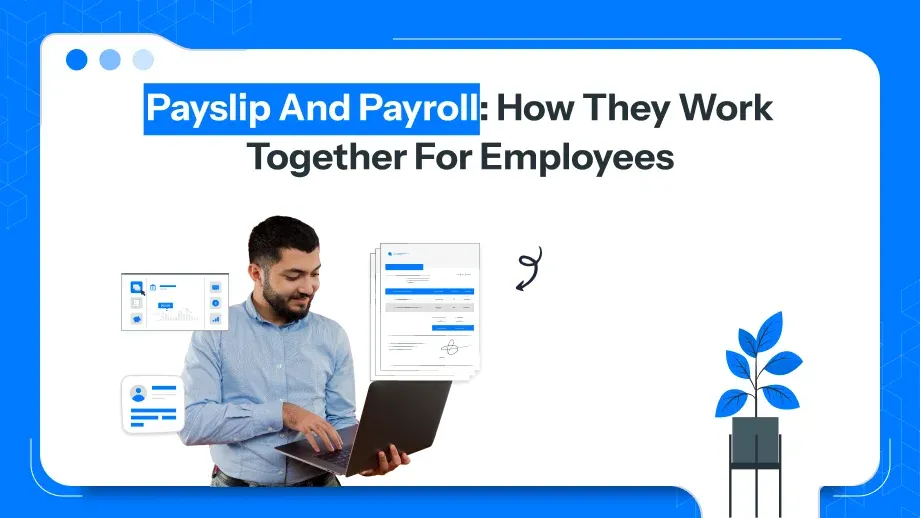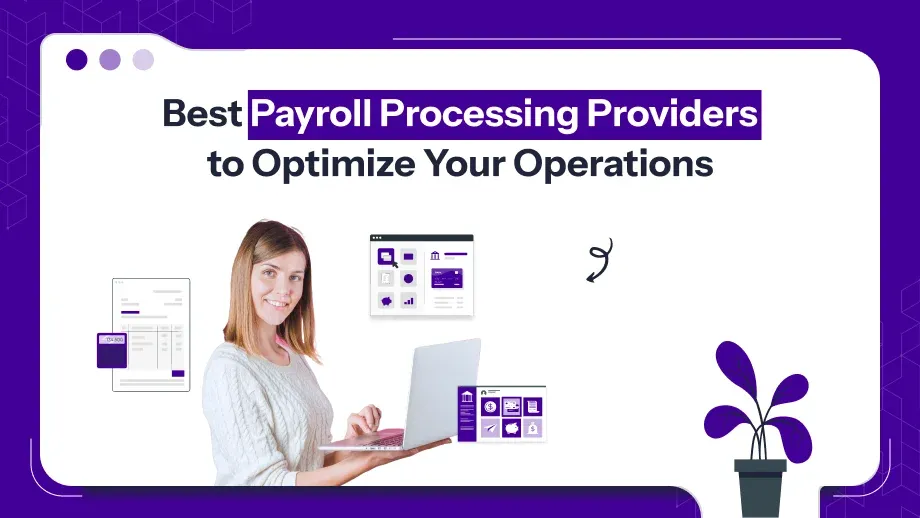The concept of process of compensation management focuses on the processes and plans that an organization employs to create, manage and control the plan compensation of employees. It involves establishing compensation, benefits, salaries as well as other types of compensation that are aligned with the company's goals and remain in the market. It includes evaluating employees and the creation of salary structure, connecting compensation with performance as well as ensuring compliance with the law.
Grab a chance to avail 6 Months of Performance Module for FREE
Book a free demo session & learn more about it!
-
Will customized solution for your needs
-
Empowering users with user-friendly features
-
Driving success across diverse industries, everywhere.
Grab a chance to avail 6 Months of Performance Module for FREE
Book a free demo session & learn more about it!
Superworks
Modern HR Workplace
Your Partner in the entire Employee Life Cycle
From recruitment to retirement manage every stage of employee lifecycle with ease.


Seamless onboarding & offboarding
Automated compliance & payroll
Track performance & engagement
The Importance of the Process of Compensation Management in Modern HR
- process of compensation management
- 9 min read
- January 10, 2025

In today’s business environment, managing compensation is an essential element in Human Resources (HR) that has a significant impact on satisfaction with employees, the performance of organizations as well as overall success of the business. With the competition to hire highly skilled workers increases, businesses recognize that compensation isn’t just about establishing the salary, but it is also creating a strategically complete payroll compensation program that is aligned with goals of the business. The process of compensation management has many components, ranging from salary structures to rewards based on performance, and it’s crucial for motivating employees, retention, and development within the company.
With the advent of data-driven and automated tools, HR departments can utilize payroll software and HRMS to simplify the process of compensation management to ensure timely, accurate and compliant management of payroll. This article focuses on the significance of the procedure of managing compensation in the modern world of HR. It focuses on how effective programs for compensation, aided by modern technology, such as payroll software can make a huge difference to your organization’s capacity to recruit employees, keep them, and inspire employees.
Understanding the Process of Compensation Management
The term “compensation management” involves the methods and procedures an organization employs to establish the salary and bonuses, as well as benefits and various other forms of pay to its employees. The process makes sure that the pay is equitable, competitive and is in accordance with the organization’s targets. An effective compensation strategy includes not just financial compensation as well as non-financial benefits like workplace benefits, balance between work and life and opportunities for professional growth.
The process of compensation typically involves the following main phases:
-
Evaluation and Classification:
Evaluation and Classification Job evaluation is the crucial element of the process of compensation. In assessing the level of complexity as well as the responsibility and needs of the various positions in the company, employers will be able to assess the worth of each position. It ensures that employees receive fair compensation according to their contributions to the business. The process of compensation management plans are based on the job classification system that defines jobs and creates the structure of each salary category.
-
Designing Compensation Structures
The process of creating a plan for competitive compensation strategy starts with establishing the structure of salary. The structure defines the basic salaries, bonuses, rewards as well as other financial incentives that employees may be expecting. Compensation processes must additionally be able to take into consideration external factors, such as the standards of industry, regional pay scales and even the organisation’s budget.
-
Performance-Based Compensation
The link between pay and the performance of employees is an essential aspect of the overall compensation system. The goal is to reward employees for their achievements and encourage high levels of efficiency, creativity as well as engagement. These could include annual sales commissions, bonuses or other rewards based on performance. These programs not only increase the motivation of employees but also match their goals to the firm’s targets.
-
Benefits and Perks
The concept of compensation goes far beyond the salaries. It can include a range of benefits such as the health insurance plan, retirement plans along with PTO or paid days off (PTO). These benefits could make the company more attracted to new employees and contribute to the retention of employees. Businesses are now providing flexible working hours as well as wellness programs and other perks in their compensation plans to improve wellbeing and satisfaction of their employees.
-
Equity Compensation
In particular, in businesses that are new or which have a high potential for growth equity compensation is an essential part of the process of compensation management. Through the offering of stock options or ownership stakes, companies will encourage employees to stay for the long haul and aid in its growth. Rewards based on equity create an underlying sense of belonging and loyalty to employees.
The Role of Technology in the Compensation Management Process
The procedure of calculating compensation was mostly manual and involved complex spreadsheets, calculations as well as paperwork. As businesses expand and employees increase and the workforce grows, manual processes are difficult to use and are prone to error. Technology, especially payroll management software India, play vital roles in simplifying and automatizing the entire process of compensation.
Through the use of the HRMS and payroll software companies can guarantee precision, accuracy and compliance, while reducing time and energy. Software solutions can be used to automate the majority of the manual processes that are involved in managing payroll including calculating salary to make sure that all bonuses and deductions are correctly and properly applied. Payroll software is crucial in India, for instance, can be crucial to ensure conformity with local laws and regulations for example, Provident Fund (PF), Employee State Insurance (ESI) and various other compulsory deductions.
How Payroll Software Enhances the process of Compensation Management
-
Accuracy and Compliance
One of the major benefits of employing payroll software lies in the precision that it adds to the pay process. Payroll calculation involves a variety of elements, like the tax deduction, overtime bonus, incentives, and tax deductions. Automating payroll eliminates the chance of error, making sure that employees get paid in a timely manner and in time. Additionally, payroll software ensures the compliance of businesses with regulations pertaining to labor such as taxes as well as minimum wage rules as well as statutory benefits. In the case of businesses that operate in process of compensation management has been designed specifically to adapt to the tax system of India and requirements for compliance.
-
Efficiency and Time-Saving
Payroll process in india manually can be lengthy and labor-intensive. Through the use of HRMS and pay software with payroll, HR professionals can streamline tasks like producing pay slips, calculation of tax deductions and payments. The streamlining procedure frees HR personnel to concentrate on the strategic aspects of employee retention and engagement.
-
Real-Time Access and Transparency
Modern payroll software applications have self-service portals available for employees which allow employees to access their pay slips, check the tax information, and modify their personal data. Transparency increases confidence and happiness, since employees feel more in charge of their information regarding compensation. The process of compensation management becomes clear and easy to access, helping to decrease the burden on HR’s administration.
-
Scalability for Growing Organizations
When companies grow and expand, their compensation process becomes ever more complex. Compensation plans may have been flexible enough to allow for various pay levels, different bonuses and other compensation components. buy payroll software online that can be developed to manage a growing number of employees and complex structures for compensation and ensure that the system is able to adapt when the company expands.
-
Data Security
The process of compensation management of employees is highly sensitive and protecting the information is essential to maintain confidence and security. Payroll software and HRMS provide encryption of data and control over access which ensures only authorized employees are able to access the sensitive data on compensation. This security level is crucial to ensure compliance with privacy legislation as well as to protect employees as well as the business.
Best Practices for Effective Compensation Management
-
Market Benchmarking
To make sure that your compensation program is competitive, it’s essential to compare your compensation to industry norms. This means researching trends in salaries for your particular industry, location and also for certain job titles. Tools for market analysis can give information on average salaries benefits, as well as the preferences of employees. With this data firms can be sure to have attractive pay packages that will help in keeping and attracting the best talent.
-
Clear and Transparent Communication
Transparency and transparency in the compensation system creates trust between employees as well as employers. Human resource payroll services should make sure employees know what their pay is based on and the requirements to determine bonuses, increases in salary and promotions. Communication that is clear helps to avoid misunderstandings and helps ensure that employees feel appreciated and are fairly rewarded for their work.
-
Tailoring Compensation Packages
Different employees may not have similar needs or desires in terms of pay. An approach that is flexible to managing compensation allows companies to create customized compensation plans to meet the individual requirements of each employee. Some employees may prefer additional days off and others might prefer the benefits of performance and health coverage. Through tailoring compensation plan for each individual, businesses will increase employee satisfaction and loyalty.
-
Regular Reviews and Adjustments
The working environment in the workplace is continuously evolving, as are expectations of workers. Periodic examinations of the payroll compensation system assure that pay structures as well as bonuses, benefits and other compensation remain fair and competitive. The regular reviews provide the possibility to alter your compensation strategy as a result of the market’s trends and inflation or changes within the company, such as an organization’s financial performance.
-
Integration of Employee Performance and the Compensation
Connecting employee compensation with performance is crucial to motivating employees as well as aligning their objectives in line with the goals of the organization. Incentives based on performance, for example incentives and profit-sharing programs help employees exceed their goals and are a key factor in the company’s performance. Every year, periodic reviews on performance must be held to gauge the progress of employees and to determine if they are eligible to receive salary raises or other reward programs.
Conclusion
Process of compensation management is among the crucial elements of HR practice in the modern age. An effective compensation program will not just guarantee that employees receive fair compensation, but it also plays a crucial function in motivating as well as engagement and retention. As companies continue to grow and expand, the significance of technology, including the HRMS & payroll software in facilitating and automatizing the process of calculating compensation becomes more significant.
Utilizing payroll software, businesses can streamline their process of compensation, decrease mistakes, improve compliance as well as provide an easy experience for HR staff as well as employees. In addition, the integration of market benchmarking or performance-based reward systems, as well as specific benefits to the compensation process can create a highly motivating and competitive work environment that draws the best talent, and ensures sustainable business growth.
FAQs
What's the procedure for the management of compensation?
The reason that compensation is vital within HR?
Compensation processes are crucial in HR since it has a direct impact on the satisfaction of employees, their retention as well as motivation. An effective compensation program can help to attract the best talent, helps that employees are valued and helps create a more productive workplace. This process can also help businesses maintain fairness and conformity with the law, helping to ensure the success of their business.
How do companies determine compensation for employees?
The majority of companies determine their compensation using a variety of variables, such as the responsibility and complexity of the job and the industry standard as well as regional pay scales as well as internal budget limitations. The process of determining compensation typically begins by evaluating the performance of employees to ensure that employees receive fair and equitable pay across all positions. In addition, data from the market along with performance metrics as well as company objectives are considered in the creation of compensation plans.
What is included in an employee compensation program?
Comprehensive compensation plans include many key components:
- Base Salary: The set salary for employees.
- Incentive and Bonuses: Extra incentive based on the performance of employees and company profit, or some other considerations.
- Benefits: such as health insurance, retirement plans pay time off, as well as other perks that are not monetary.
- Equity Compensation: Stock Options that aligns employee's interests in the success of the business.
- Other Benefits: Flexible working hours, fitness programs, as well as other programs that are geared towards employees.
What software can help with payroll? the payment process?
Payroll software streamlines and simplifies the process of compensation by taking care of payroll calculations, deductions and bonus payments, and other benefits. It makes sure that employees receive their wages accurately and timely, which reduces the amount of manual error and administration workload. Payroll software helps in ensuring that employees are in compliance with state tax law, mandatory benefits and other governmental obligations. It gives employees transparency who are able to view their tax stubs as well as pay data by using self-service websites.


